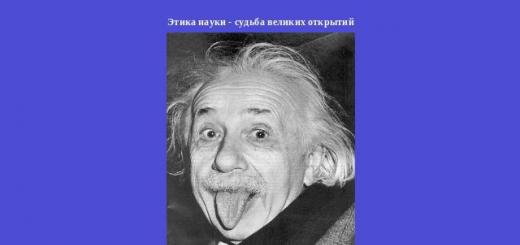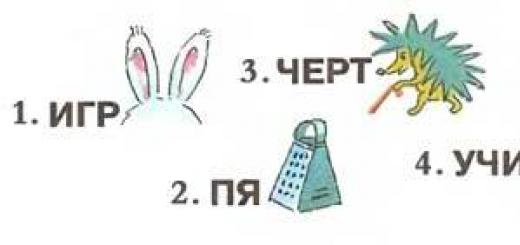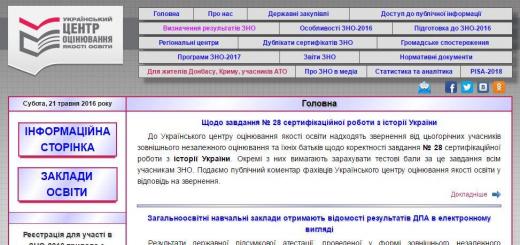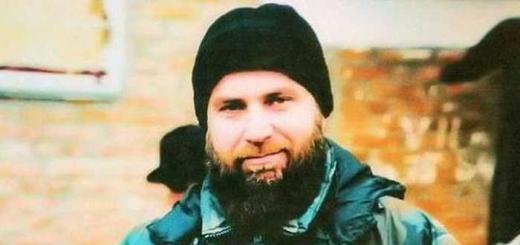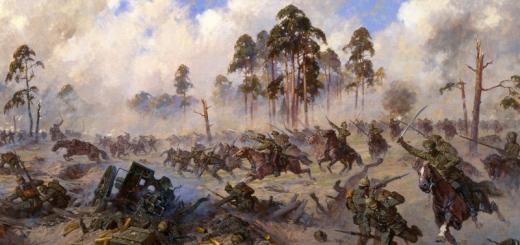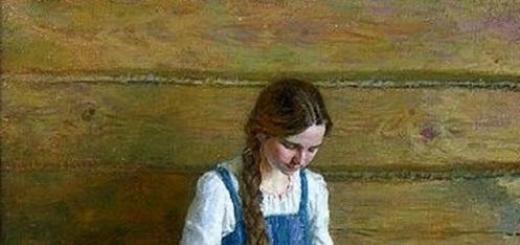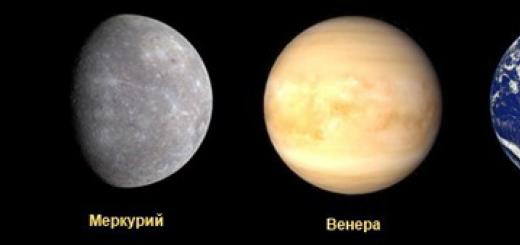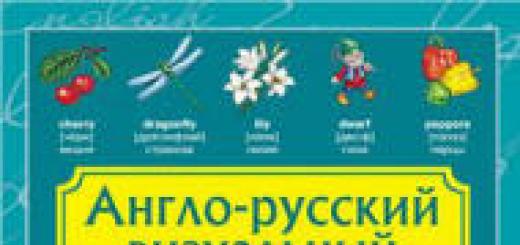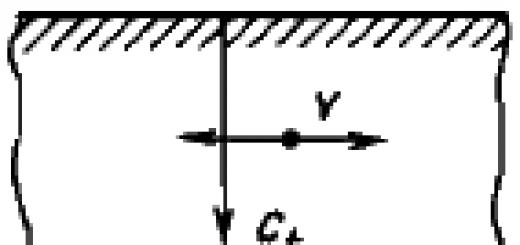Each of us remembers our first teacher. This is a man who taught us not only to read, write, count, but also gave us our first understanding of the world around us, of friendship and mutual assistance, and of the basic values of life.
Over time, the first teacher is replaced by others who try to convey to us some new knowledge, and each of them leaves a trace in our memory. As an adult, remembering your school years, you involuntarily remember your teachers, who were sometimes strict and demanding, but undoubtedly fair.
Priceless work
The teaching profession is hard work, on which not only your future life depends, but also the development of society as a whole. The teacher gives us the necessary knowledge, reveals hidden talents, and tries to direct our abilities in the right direction. At the same time, he must be able to find an individual approach to each of his students. After all, if you treat children with disrespect, you cannot earn their love and understanding, you cannot demand respect for yourself and your work.
Sometimes, when assessing the knowledge and skills of your students, it is very difficult to be impartial. But a true professional will never give free rein to his emotions; he will always follow his principles in any situation. In order for the learning process to be interesting for children and give good results, the teacher must constantly improve his knowledge, read a lot of literature, and obtain information from the Internet. Then he will always have something to say to his students.
Hard work
There are many difficulties in this profession. Indeed, in our time, many children simply do not want to study, some do not even attend classes, others behave defiantly in class. Often quarrels and conflicts arise between students, which the teacher must help resolve. In order to cope with all the difficulties, a teacher must love his profession very much, give part of himself to it, always be self-possessed and have a certain amount of trust among children.
It is very important that communication between the teacher and children is not limited only to the school walls. A good teacher will always interest children in various extracurricular activities: going to the theatre, circus, cinema, organizing a camping trip or simply going out into nature. There, in an informal setting, you can get to know each other more closely, discuss common interests, and make friends. Usually, spending time together like this really brings the team together and makes you feel that you are not just boys and girls, but one whole. In order to engage in such extracurricular activities, the teacher must sacrifice his own free time. Unfortunately, not everyone wants this, and most modern teachers have little interest in the hobbies of their students.
The beautiful is far away...
The teaching profession is one of the most important and necessary. After all, it is he who raises future scientists, diplomats, outstanding cultural figures and simply worthy citizens of his state. In order for today's schoolchildren to turn out to be kind, respectable people, it is necessary now to introduce them to the basic laws of the state, to the formation of basic moral principles, such character qualities as respect for others, kindness, compassion and willingness to help. The teacher instills in us hard work and responsibility for our actions, love for our country and self-esteem.
All these ideas and principles cannot be conveyed to a person if you do not possess them yourself. Therefore, a good teacher is always a great friend, a role model, a good citizen and a true patriot of his country. Undoubtedly, the teaching profession is one of the most important; it is worthy of respect, admiration and endless gratitude.
Short description:
A teacher is a unique profession, beyond time, fashion and geography. Being one of the oldest, it remains in demand to this day. Like everything in the world, it undergoes changes. According to Ozhegov’s dictionary, a teacher is a person who teaches someone something.
History of the profession:
Once upon a time, when there was no division of labor, all the eldest, most experienced representatives of the tribe or community became teachers. During the transition to the division of labor, teachers became people who practiced this or that craft and passed on this or that skill or knowledge. It was only in the 18th and 19th centuries that teaching as an officially recognized profession became a mass phenomenon in Europe and throughout the world.…
The emergence of the teaching profession has objective grounds. Society could not exist and develop if the younger generation, replacing the older generation, was forced to start over, without creatively mastering and using the experience that it inherited. Since the emergence of the teaching profession, teachers have been assigned, first of all, an educational function. A teacher is an educator, a mentor. This is his civic, human purpose.
As the processes of social production became more complex, methods of cognition developed, and scientific knowledge rapidly grew in society, a need arose for the special transfer of knowledge, skills and abilities. That is why, from the field of “pure” education, a relatively independent function has emerged in the teaching profession - teaching. The educational function began to be entrusted to other persons. Thus, in families of privileged classes, home educators were invited to raise children. In Russia, these were, as a rule, foreigners - tutors and governesses. In public and private educational institutions, along with teachers, there were class monitors, class mentors, class ladies, etc.
The practice of education has its roots in the deep layers of human civilization. It appeared along with the first people. Children were raised without any pedagogy, without even knowing about its existence.
It is known that the root cause of the emergence of all scientific branches is the need of life. The time has come when education began to play a very noticeable role in people's lives. It was discovered that society progresses faster or slower depending on how it organizes the education of the younger generations. There was a need to generalize the experience of education, to create special educational institutions to prepare young people for life.
Already in the most developed states of the ancient world - China, India, Egypt, Greece - serious attempts were made to generalize the experience of education and isolate theoretical principles. All knowledge about nature, man, society was then accumulated in philosophy; The first pedagogical generalizations were also made in it.
At all times, folk pedagogy has existed, which played a decisive role in the spiritual and physical development of people. The people have created original and surprisingly resilient systems of moral and labor education.
Social significance of the profession in society: In the 21st century, when knowledge is becoming more and more, science is advancing by leaps and bounds, the profession is acquiring new significance for the development of society and the world of science. Teachers accompany us throughout life, from kindergarten age. Even beyond the walls of our alma mater, we continue to learn. The fitness trainer hides chocolate from us and makes us run a few more kilometers on the treadmill. A business coach shares the latest mastery tips, making us more successful.
The popularity and uniqueness of the profession: The main competence of a successful teacher, regardless of the discipline taught and the audience, is effective communication. It is precisely this that allows you to convey knowledge, motivate to work, and manage conflicts in the team. In second place is excellent knowledge of the subject. The third is patience, patience and more patience.
Great teachers of the past
All nations and at all times have had outstanding teachers. Thus, the Chinese called Confucius (VI - V centuries BC) a great teacher. One of the legends about this thinker describes his conversation with a student: “This country is vast and densely populated. What does it lack, teacher?” - the student turns to him. “Enrich her,” the teacher replies. “But she’s already rich. How can we enrich her?” - asks the student. "Teach her!" - exclaims the teacher.
Czech teacher-humanist Ya.A. Comenius dreamed of giving his people the collected wisdom of the world. He wrote dozens of school textbooks and over 260 pedagogical works. He compared the teacher with a gardener who lovingly grows a plant in the garden, with an architect who carefully builds knowledge into every corner of a human being, with a sculptor who carefully hews and polishes the minds and souls of people. The methods, principles, and forms of teaching he proposed, such as the classroom-lesson system, became the basis of pedagogical theory. His main work "Great Didactics", published in Amsterdam in 1654. - one of the first scientific and pedagogical books.
Education for the sake of the child’s happiness - this is the humanistic meaning of pedagogical activity V.A. Sukhomlinsky. Without faith in a child, without trust in him, all pedagogical wisdom, all methods and techniques of teaching and upbringing, in his opinion, are untenable. The basis for a teacher’s success, he believed, was the spiritual wealth and generosity of his soul, well-mannered feelings and a high level of general emotional culture, and the ability to delve deeply into the essence of a pedagogical phenomenon. The primary task of the teacher, he noted, is to discover the creator in every person, to put him on the path of original creative, intellectually fulfilling work.
Brought world fame to Russian pedagogy K.D. Ushinsky. They were asked to make work a full-fledged educational tool. The textbooks he created have had a circulation unprecedented in history. For example, “native word” was published 187 times. His legacy consists of 11 volumes, and his pedagogical works still have scientific value today. In Ushinsky’s youthful diary, the goal of his life is formulated: “to do as much good as possible for my fatherland.” He achieved his goal.
Where to get a profession:
The education system offers ample training opportunities for those who want to become a teacher. The main thing is to decide what exactly and in what format you want to teach. If you love tinkering with kids, you can become a teacher in a kindergarten or primary school, which you will learn at a pedagogical college or pedagogical institute. In order to teach at a university, you must obtain at least a complete higher education, and ideally an academic degree.
Teachers colleges
The first stage of professional pedagogical education in Russia is pedagogical colleges, which provide secondary vocational education for teaching in preschool institutions and primary schools.
Secondary pedagogical education.
Specialties: “Teaching in primary grades”, “Pedagogy of additional education”, “Special preschool education”, “Physical education”, “Correctional pedagogy in primary education”, etc.
Higher education institutions
The second stage of professional pedagogical education is higher education institutions, where you can receive higher pedagogical education, as well as psychological education.
Bachelor's and Master's degrees- these are two levels of higher pedagogical education.
The first level is a bachelor's degree, in which training lasts 4 years. A bachelor's degree gives the right to work as teachers in various educational institutions. The second level is the training of masters, which is carried out over 2 years and prepares specialists to solve a variety of pedagogical problems and research activities.
Higher pedagogical education.Pedagogical universities. Specialties: “Pedagogy and methods of preschool education”, “Foreign language”, “Philology”, “Mathematics”, “Physics”, “Chemistry”, etc.
Postgraduate studiesThe third level of teacher training is postgraduate and doctoral studies, which produce highly qualified scientific and pedagogical personnel for training teachers in higher educational institutions.
Interesting page
Poems about teachers
If there were no teacher,
It probably wouldn’t have happened
Neither poet nor thinker,
Neither Shakespeare nor Copernicus.
And to this day, probably,
If there were no teacher,
Undiscovered Americas
Remained unopened.
And we wouldn’t be Icari,
We would never have soared into the sky,
If only through his efforts we
The wings were not grown.
Without him there would be a good heart
The world was not so amazing.
That's why it's so dear to us
Our teacher's name.
G. Krupin
Learn to work, think boldly,
Walk - the roads are good...
There is no happier thing in the world,
What is the education of the soul!
For mentors - poems and songs,
The sparkle of inspired lines,
The wisest of all professions,
The greatness of the title: “Teacher!”
There is no more beautiful position in the world,
Labor is braver and sweeter...
Shine blue. It is a holiday today
My friends, teachers.
Anyone who has become a teacher will understand
What a joy it is to be useful to people,
Teach His Majesty the People!
Bring him the gift of wisdom and knowledge,
And the light of your heart’s kindness -
There is no more responsible calling on earth,
There is nothing more honorable and joyful.
Outlined by immortal ideas,
Let your work be honest to the end,
And then they will open up to you
Fellow young citizens with pure hearts.
And they will carry it like a baton,
As a memory of your teacher,
Our desire is to make this land
The planet we live on!
S. Vikulov
Riddles about the teacher
He gives us knowledge
Sets marks
Recognition from us in return
He gets it all the time.
Mentor, leader,
Our beloved... (teacher)
The teacher will solve any problem
And it’s easy to distinguish a circle from a square,
A long example will count in your head.
What kind of teacher is he, tell me? (Mathematic teacher)
He will instantly hear a mistake in his speech,
He reads a lot and writes competently,
He would write any dictation with an A.
What kind of teacher is he, try to tell me? (Teacher of Russian language)
Proverbs and sayings about study, teaching, teachers
Live and learn
The bird is red in its feathers, and the man is in his learning.
Without studying, you can't weave bast shoes.
Repetition is the mother of learning.
A full belly is deaf to learning.
It's hard to learn, but it's easy to fight.
Learning is light and ignorance is darkness.
To teach others, you need to sharpen your mind.
Quotes Aphorisms about teachers
1. Whoever the gods want to punish, they make him a teacher. Seneca
2. They demand a miracle from doctors and teachers, and if a miracle happens, no one is surprised. Maria-Ebner Eschenbach
3. If a teacher has only love for the job, he will be a good teacher. If a teacher has only love for the student, like a father or mother, he will be better than the teacher who has read all the books, but has no love for either the work or the students. If a teacher combines love for his work and for his students, he is a perfect teacher. Lev Nikolaevich Tolstoy
Puzzles on the topic “School”

Continuing work on the project “About a Hundred Professions,” 4th grade students interviewed the primary school teacher of Municipal Educational Institution Secondary School No. 4 Nina Nikolaevna Amyashkina.
- Nina Nikolaevna, why did you choose the profession of a teacher?
Why did I choose the teaching profession? My path to the profession began in childhood.
The first teacher leaves a deep imprint in the memory of every person. I will never forget that fine September day when, as a little girl, I crossed the threshold of school and gave a huge bouquet of asters to my first teacher. In my memory she remained as the kindest, brightest, sincere, but strict and demanding teacher. I tried to imitate her in everything.
But the last bell rang! I'm leaving school. But how great is the desire to return here! Then I decided to try my hand and went to learn the basics of teaching at the Penza Pedagogical School. After graduating from college, she was assigned to the city of Serdobsk and began working at school No. 9. After working for 5 years, she moved to school No. 4. While already working here, she entered the Penza Pedagogical Institute, studied and worked at the same time. Of course, it was difficult to combine study, work, and also a family at home. But all difficulties were overcome. I really love my profession.
- Nina Nikolaevna, how many years have you been working as a teacher?
I already have a lot of work experience. I have been working at Municipal Educational Institution Secondary School No. 4 for 29 years and worked for another five years at school No. 9. In total, 34 years.
- Have you ever regretted choosing this profession?
While working at school, I never regretted that I chose the profession of a teacher. Every day I happily go to class, knowing that today I will help the children climb another step, take another step into the future with them. I am a happy man!!!
I have to meet and see off every year,
And every day to look into children's souls.
Every hour I feel unity with them,
And every moment it becomes cleaner, better...
Thank you, Nina Nikolaevna for your sincere and interesting story. We wish you creative success and, of course, good, obedient students. Happy New Year!


Svetlana Badovskaya
Article “Profession “teacher”: by vocation or? ..."
Profession« Teacher» - "By vocation, or?."
“We teach our children first. Then we ourselves learn from them. Those who do not want to do this are behind their times.”
Jan Rainis
One of the most difficult professions in the world - teacher!
Probably not everyone is capable become a teacher, because this is not for you just need to get a higher education, and it is also necessary to have a genuine desire for professions. He who has chosen the path of a teacher devotes himself entirely to education, otherwise he would not be able to instill in his students a love of knowledge.
At a new stage of time, when the speed of development of science and technology determines the tasks of education, it is necessary to constantly learn everything: And For teachers, and Students. And first of all learn build fruitful interpersonal relationships with each other.
Real Teacher grows and develops together with students, taking them into the world of the unknown. Every child has abilities and talents. And for them to open, it is necessary to master the ways, methods, techniques of the mind, soul and high Spirit!
Teacher in a modern school there is not a single source of information with a single correct point of view. Therefore, he accepts the position of a person in the person of the student, his personal opinion, his point of view, his position, which often differs from others.
Love children "convenient" who don’t contradict anyone, sit quietly, get good grades - you don’t need a lot of intelligence and strength.
Necessary learn to love those too, who contradicts, who loses interest in studying, who does not want to go to school.
These truisms should be understood by teachers of schools and universities, as well as students who have chosen this noblest and most difficult profession.
Why do you often hear from schoolchildren: - Yes, some new teacher, young and angry. He yells at us, forces us to redo the work a hundred times, and cleans up the work area after everyone. The old man was kind and never yelled at us, even when we were late...
If you turn to statistics quality of the educational process in universities over a decade and a half, we can trace the trend of growth in commercial education and a decrease in the budgetary provision of universities by the state. What are the consequences of such trends. Is quality teaching possible in schools if "paid" diplomas and weak vocational training.
Here is a review from a parent of one of the city schools about teacher professionalism: - Yes, Lord, what will you take from her? I graduated from college in absentia for money, didn’t read a single book, and still gives my child a C...
What do we have today?
Definitely a low level professional training of young specialists is due to an increase in the volume of commercial training for students! Hence the low level of competition among students entering the university. They take everyone in a row so that when it is really necessary study, many "will drop out". But global "dropouts" does not happen, since many universities have established a system for purchasing grades. Every year, issue after issue, a huge number of so-called specialists appear, including teachers, but only a few come to school, and even then without the necessary knowledge, talent and desire. Future university students are oriented in advance to the wave of commercial relations between teacher and student.
Arriving at school, a young teacher finds himself in a world of unknown relationships. teacher-student, teachers-teachers, head teacher and director, teacher-state. Lots of advice and recommendations from senior colleagues and administration, first failures and despair. How to build your pedagogical destiny in the flow of events and information boom, decide on the manner of communication with students and colleagues, and correctly navigate the process of creating your pedagogical credo?
You have to answer many questions, first of all, yourself.
How, you ask?
V. G. Belinsky said: “Without striving for something new, there is no life, no development, no progress”. These words were spoken a long time ago. But it seems to me that these words are about him, about modern teacher, about teacher who strives forward, who is ready to master everything new, innovative and successfully apply it in the practice of his work.
Modern society is inextricably linked with the process of informatization. Life itself forces us to actively use information and computer technologies (ICT) in the educational process.
The child’s brain, tuned to receiving knowledge in the form of entertainment programs on television, perceives the proposed teacher information using ICT. Hence, to the teacher It is necessary to master not only modern methods, but also new educational technologies in order to communicate in the same language with the child and continuously developing computer technologies. Before teacher The task is to educate children in such a way that they can quickly and flexibly respond to changing conditions, be able to detect new problems and tasks, and find ways to solve them.
A student of the 21st century, who came to school from the modern world, focused mainly on material values, is immersed in a completely different world - a world with predominant spiritual guidelines. Some guys express violent protest, others adapt to the demands of the school.
To the teacher It is necessary to show maximum patience and understanding, constantly improve your own level of education and organize the educational process in such a way that each student feels comfortable.
It’s difficult to be like this if you weren’t taught at university to think, search, study!
Is there a way out of this situation? Is the state ready? admit failure of the predominance of commercial education and outline ways to solve the problem? It is very difficult to answer this question.
But to answer the question: "What teacher is a calling or a diploma specialty?”, I’ll still try.
Let's try to figure out whether it is necessary vocation in the chosen profession or enough marks in the diploma of specialization.
And what is it vocation?
An inclination, an internal attraction to some matter, some professions, when you have or believe that you have the necessary abilities, there is vocation. Can you feel vocation to science, vocation to the music and follow your vocation.
At any profession is very important so that a person loves his work and receives spiritual satisfaction from it.
While working as a music director in a preschool educational institution, I met a very interesting person and a good teacher, Shulga Lyudmila Petrovna. Lyudmila Petrovna dreamed from early childhood become teacher and devoted her entire adult life to raising children in a preschool institution. Many dozens of grateful students remember with warmth and tenderness the years spent next to Lyudmila Petrovna. Why did this extraordinary woman and teacher fall so deeply into the hearts of her students?
To understand this, you need to be around for as long as possible and have the opportunity to observe the continuous pedagogical process, which is built on inspired creativity. These include extraordinary activities, creative projects and research together with parents, magical scenarios for fairy tales and show productions, and puppet shows before bedtime. And, of course, as a result - the excellent knowledge of the lucky children who attend group No. 9 every day under the simple name "Rocket".
Yes, this is exactly the case when They say: "Works according to vocation!» .
But why do they say this about rare teachers? What is the secret and magic of the real and talented teachers?
Maybe in his appearance, or in his rich arsenal of knowledge. Or maybe he was in the right place at the right time and was lucky?
How to figure it out? What is the guarantee that you will succeed as teacher?
Maybe it's good to know your subject? Skillfully use didactic and methodological developments? Love children?
Or maybe you need to be able to communicate competently and effectively?
Is there something more important and something less important from the above listed in teacher profession? Many and many teachers They know their subject well, know how to use the teaching methods of the subject, love children, but do not feel satisfaction from the work they do. We often hear that the reasons for this dissatisfaction are low wages teachers. It's hard to disagree. But let’s imagine that the situation changes magically and you and I receive a decent salary, won’t all the problems that torment us disappear from our school life? Is it possible to say that there is a secret in the amount of money we receive? professional excellence?
The educational process at school is a complex system of pedagogical interaction. Pedagogical axiom reads: may be professor in the field of its subject, but if there is no relationship between teacher and students, there will be no educational results.
A teacher is a representative of the profession, which refers to the “man-man” system, and therefore, no matter what he does while fulfilling his professional responsibilities, he has to interact, communicate with other people. The more effective teacher knows how to organize this interaction, the more pleasure he receives from the results and the labor process itself. The transition to personality-oriented learning, based on respect for the child’s personality, knowledge of his characteristics and the construction of education taking into account the characteristics and needs of each, requires a change in the style of relationships between the teacher and students. Relationships are as important as lesson rules. Mastering the rules of relationships is possible only in practical activities; it is necessary to analyze actions more often, conduct self-reflection on pedagogical activities, and then what is called cooperation in pedagogy, an active type of interaction, will gradually form and develop.
Summarizing the above, it can be argued that the more information, methods and tools he uses in his work teacher The more diligently he analyzes his teaching activities, the greater the effect of his work. After all, not even the most modern computer and the fastest Internet will provide to the teacher the main thing is the ability to create, study, work on yourself, experiment and share your knowledge and experience acquired in the process of self-education. Then, probably, many years later about this the teacher will be told: « Teacher from God! How lucky we are!”

When we achieve success, we say: “I had good teachers.” If nothing works out, we express dissatisfaction: “Nobody taught us this.” A person comes into the world without knowledge, skills and experience. His abilities are hidden far away. It is not adapted to the environment. He needs to explain the essence of things. Who will enlighten the little ignoramus - a genius mentor, a mediocre teacher? A question of the present and the future. A teacher is not a profession - the ability to be generous, the talent to give. Can you do this? Welcome to our union!
History and evolution of teaching
The word “teacher” was given to us by the ancient Greeks. This was the name of a slave who babysat children and passed on his skills to them.
The first people did not know the division of labor and did everything together. The younger members of the community watched what the elders were doing. The elders shared their experiences. The handy taught the incompetent. The experts satisfied the interest of the curious. Humanity has always learned, starting from the moment of its appearance.
With the advent of tools, people were divided into groups according to their occupation. Some plowed the land, others hunted, and others prepared food. Specific skills were passed on from one community member to another.
Soon man began to think about the spiritual growth of his descendants, the moral education of children, intellectual development, and preparation for life in society. This is how the first teacher-educators appeared.
Gradually, people began to stand out who successfully taught children. They were given special powers and allowed to engage only in pedagogical activities.
The word “schole” appeared in everyday life among the ancient Greeks, from which the term “school” was derived. It means “rest, leisure.” The fact is that the inhabitants of ancient Athens believed that a person rests when he studies. The writing and counting we are familiar with appeared in medieval monasteries. Monks were generally considered the best teachers. They were invited to the children of rich people and taught them for a fee.
In Europe, with the development of schools, the need for people capable of transmitting knowledge to large groups of children has grown. There was a need for special teaching methods. The teaching profession gradually became a separate discipline, and the range of subjects taught expanded significantly.
Description and specifics of the profession
A teacher is a specialist who conveys knowledge in a particular field, skills acquired in the process of work, and also shares practical experience.
The teaching profession is a symbiosis of different human capabilities. People who master it must have a broad outlook, be able to speak competently, have the gift of persuasion and the talent of a communicator.
In modern conditions, a teacher needs to constantly improve his qualifications so that the knowledge transferred to students always remains relevant in the labor market and brings real benefits to society. Representatives of this profession bear social responsibility for the education of the younger generation. It depends on them how erudite, educated and well-mannered citizens will govern the country tomorrow.
Despite a slight decline in the prestige of the profession in recent years, it still remains in demand. Teachers are always welcome in big cities, small and medium-sized towns, small rural and village settlements.
The specifics of a teacher’s work depend on the geographical location, social composition of the population and the level of support for teachers from the state represented by the local administration.
Many people ask why the profession of a teacher is useful today, in a period of abundance of educational computer programs, electronic textbooks, online and offline courses, in the era of the development of artificial intelligence and other new technologies.
The peculiarity and value of real, rather than virtual, pedagogy lies in a personalized approach to learning. Just as there are no two people with the same level of intelligence, there are no standardized teaching methods. To a greater extent, this applies to the humanities, in the teaching of which universal methods do not work.
What should a teacher be like?
The work of a teacher involves solving a number of problems. Their list and content are determined by the Ministry of Education of the Russian Federation, local education departments, as well as the teacher himself when developing proprietary methods and programs.
When choosing a teaching profession, it is worth assessing your abilities. A good teacher should:
- love children;
- possess pedagogical education skills;
- have an idea of the characteristics of the psychology of children of different ages;
- be able to find contact and mutual understanding with a group of children and an individual child in the group;
- be attentive and friendly towards students, respect the individuality of each;
- know your subject, freely navigate your chosen field of knowledge;
- be erudite, expand the boundaries of your knowledge taking into account the development of science and new technologies;
- convey knowledge to the audience in an interesting and accessible way, improve your speaking abilities;
- be a leader, authority and bearer of a valuable opinion, be able to lead students;
- have a high level of self-discipline and responsibility;
- have self-control and balance;
- be objective and fair when making decisions;
- have diverse interests, engage in self-development;
- be tolerant and loyal towards different opinions and actions, tactful in dealing with people;
- take into account the peculiarities of raising a child in a family, his mental and physical development, the presence or absence of his talents, habits and inclinations;
- be observant, have the ability to see perspective in the development of children.
Job responsibilities of a teacher
The duties and rights of a teacher are regulated by the job description, which is approved by the Ministry of Health and Social Development of the Russian Federation. The list concerns all areas of a teacher’s activity - from teaching and raising children to extracurricular and extracurricular work. Here are some of the job responsibilities of a teacher:
- Engage in training and education in accordance with approved educational standards.
- Select programs, paper and digital teaching aids for successful mastery of the material.
- Ensure achievements in learning and confirmation of results obtained in the educational process.
- Evaluate the effectiveness and efficiency of teaching in the subject taught.
- Make proposals to improve the educational process.
- Ensure the safety and health of students.
- Communicates with parents or guardians.
- On school grounds, at home and in public places, observe ethical standards of behavior that correspond to the social position of the teacher.
- And others.
Which subject to choose for teaching?
The teaching profession has many directions, which are constantly being supplemented with new subjects. Their appearance depends on the development of the higher education system, as well as the needs of the labor market.
Currently, in pedagogical educational institutions it is possible to undergo training in the following specialties:
- pedagogy and psychology;
- preschool pedagogy and psychology;
- philology;
- foreign languages;
- biology and chemistry;
- physics, technology and information systems;
- mathematics;
- geography;
- history and politics;
- physical culture, sports and health;
- art.
- social and humanitarian education;
- defectology;
- journalism and communications;
- international education;
- etc.
Where to become a teacher
In Russia, teachers are trained in specialized vocational schools, colleges, institutes, as well as in pedagogical departments of universities. There are pedagogical universities in almost every region.
Top 10 best pedagogical universities in Russia:
- Moscow Pedagogical State University
- Russian State Pedagogical University named after A. I. Herzen
- Voronezh State Pedagogical University
- Armavir State Pedagogical Academy
- Yaroslavl State Pedagogical University named after. K.D. Ushinsky
- Nizhny Novgorod State Pedagogical University named after. Kozma Minina
- Russian State Vocational Pedagogical University
- Ural State Pedagogical University
- Altai State Pedagogical University
- Moscow State Psychological and Pedagogical University
Pros and cons of being a teacher
Sharing knowledge with other people is a noble and rewarding endeavor. You may not become a physicist, but you cannot forget the teacher who once explained to you why airplanes fly, how quickly water boils away in a kettle, and how a letter from Moscow to Australia flies in one second. Let's compare the advantages and disadvantages of being a teacher.
The teaching profession is the most difficult of all. My mother works as a teacher at school and teaches children biology - an interesting science about nature.
Each school has many different teachers - some teach the youngest students to read and write, others help them learn a lot of interesting and useful things about the history of countries and cities, nature, animals, space and much more.
Mom reads a lot, constantly studies herself, learns something new and tells it in class so that the children are interested and so that they grow up educated.
Mom gets up early in the morning because school starts early and she still needs to prepare for it. Sometimes my mother also works at home in the evenings, checking notebooks or preparing for lessons, just like me.
To become a teacher, you need to study well, graduate from school with good grades, and then graduate from college or university. At an institute or university, future teachers gain more knowledge on the desired subject, and also learn to share this knowledge with children, because being able to explain something to another is also very difficult.
The teaching profession is a difficult but interesting job. And my mother loves her very much, and every day she teaches interesting and useful lessons at school.
Related Posts

